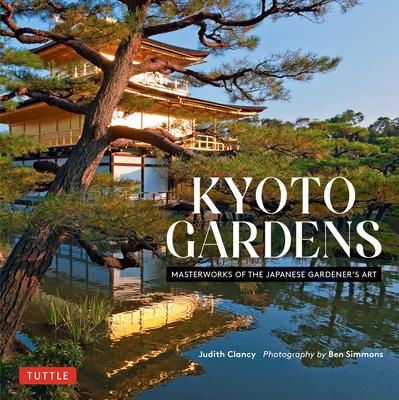- Kyoto's Old Imperial Palace Garden: A massive walled complex filled with flowering plants, trees and buildings which served as the official residence of the Japanese emperor for over 500 years before 1868 and is now a public park.
- Heian Jingu Shrine Garden: Constructed on the site of the ancient capital and filled with lush greenery, ponds, rocks, bridges and pavilions which float above the water, providing a sense of tranquility and natural beauty.
- Ginkaku-ji Pure Land Garden: An earthly paradise featuring a massive truncated mound of packed sand that is resculpted by hand daily, this site was originally designed as a private villa by one of Kyoto's rulers then turned into a Zen Buddhist temple upon his death.
- Kinkaku-ji Estate Garden: Perhaps Kyoto's most recognizable sight, a Golden Pavilion perched on the edge of a tranquil pond on whose smooth surface are reflected beautiful rocks and cypress trees placed all around it.
- Ryoan-jin Zen Rock Garden: The purest expression of a world in miniature, expressed as a sea of raked gravel with islands of natural stone and moss set in its midst, walled off from the outside world to provide a place for meditation and contemplation.
- Saiho-ji Moss Garden: Famed for its moist and soft, shimmering green covering of moss, this unique estate was designed in the 14th century and radically altered the art of the Japanese garden.
- Tofuku-ji Zen Garden: An ancient temple site which contains some of the best examples of a new "contemporary" gardening style pioneered by Mirei Shigemnori in the early 20th century, featuring enormous rocks set in a sea of raked gravel and irregular checkboard squares set in a soft bed of moss ringed by azalea bushes.
- Plus two dozen other masterful gardens!
Simmons' sensitive photos present a fresh, contemporary look at these timeless gardens while Clancy's graceful descriptions provides historic, aesthetic and cultural context. This new edition has been updated and revised, with many new photographs added.
